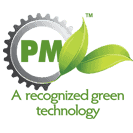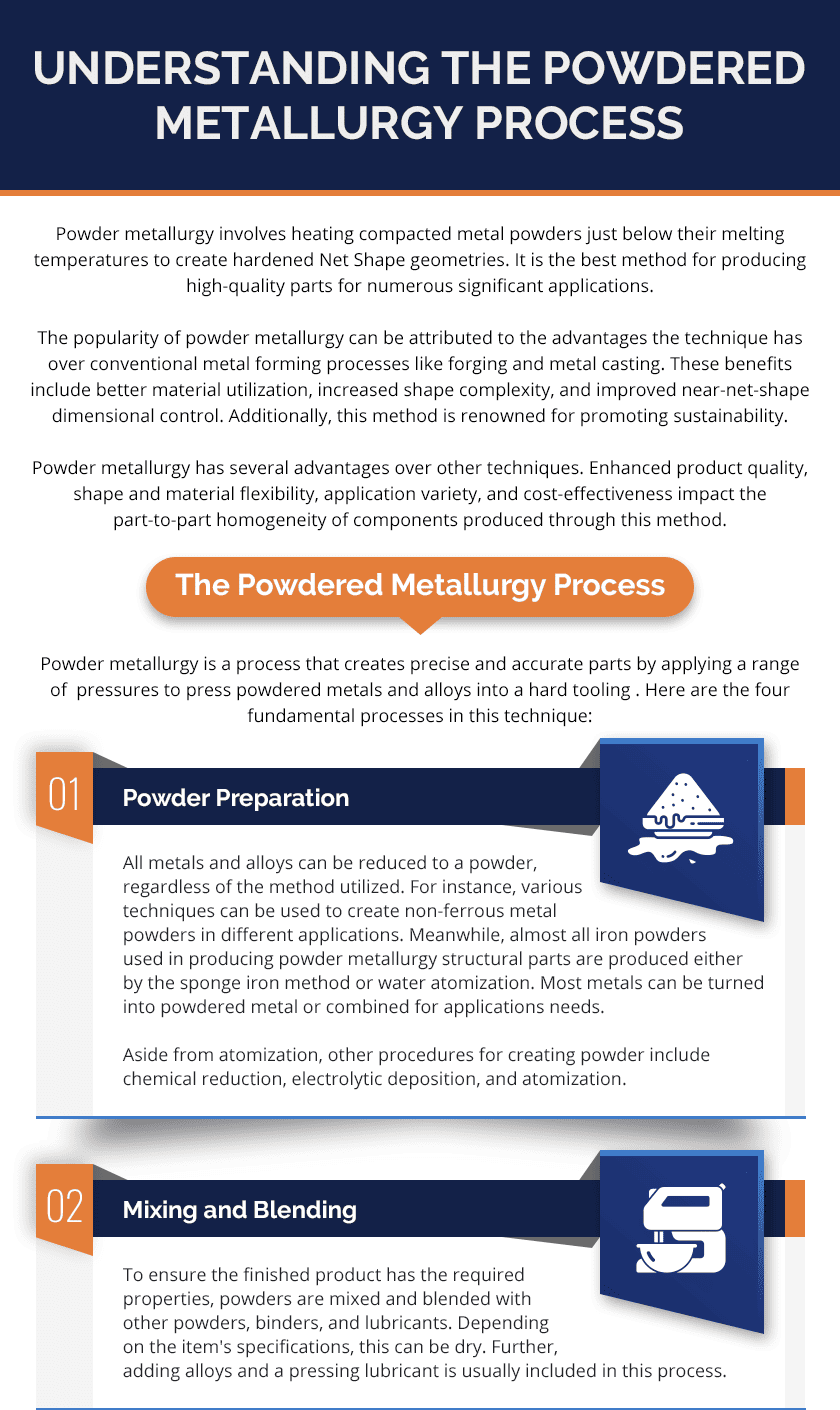Understanding the Powdered Metallurgy Process
Powder metallurgy involves heating compacted metal powders just below their melting temperatures to create hardened Net Shape geometries. It is the best method for producing high-quality parts for numerous significant applications.
The popularity of powder metallurgy can be attributed to the advantages the technique has over conventional metal forming processes like forging and metal casting. These benefits include better material utilization, increased shape complexity, and improved near-net-shape dimensional control. Additionally, this method is renowned for promoting sustainability.
Powder metallurgy has several advantages over other techniques. Enhanced product quality, shape and material flexibility, application variety, and cost-effectiveness impact the part-to-part homogeneity of components produced through this method.
The Powdered Metallurgy Process
Powder metallurgy is a process that creates precise and accurate parts by applying a range of pressures to press powdered metals and alloys into a hard tooling . Here are the four fundamental processes in this technique:
Powder Preparation
All metals and alloys can be reduced to a powder, regardless of the method utilized. For instance, various techniques can be used to create non-ferrous metal powders in different applications. Meanwhile, almost all iron powders used in producing powder metallurgy structural parts are produced either by the sponge iron method or water atomization.
Aside from atomization, other procedures for creating powder include chemical reduction, electrolytic deposition, and atomization.
Mixing and Blending
To ensure the finished product has the required properties, powders are mixed and blended with other powders, binders, and lubricants. Depending on the item’s specifications, this can be wet or dry. Further, adding alloys and a pressing lubricant is usually included in this process.
Compacting
Compressing the powder mixture into the required form or tooling is known as compacting. When done correctly, compacting reduces potential voids and greatly boosts the product’s density.
Each type of metal powder requires a particular compacting pressure — from 80 MPa to 1600 MPa — depending on its characteristics. For example, the pressure for compacting soft powder ranges from 100 MPa to 350 MPa, while the pressure ranges from 400 MPa to 700 MPa for harder, more resilient metals like steel and iron.
Sintering
In this step, the material is heated to a temperature below the melting point of the main component, typically in a protective environment. Liquid phase sintering refers to situations where a minor constituent can occasionally form a liquid phase at the sintering temperature.
Components Manufactured Using the Powdered Metallurgy Process
Powder metallurgy may be used to meet the requirements of any application or production process, and almost all manufacturing companies use it. Among these applications includes areas in the industries below:
Automotive Gears
The capacity to generate complex configurations utilizing efficient production techniques is one of powder metallurgy’s benefits for producing vehicle parts. Finishing or machining are unnecessary if complex components can be produced without waste or scrap.
Machinery Gears
When it comes to powder metallurgy, one of the most frequently produced items is gears. This process provides outstanding precision, extending gears’ life. Champhers and various techniques can be used to localize density,increase strength and improve smoother outcomes. .Compound gears can be made net without separate gears or assemblies.
Oil and Gas Industry
Exploration for gas and oil requires hard metal and diamond-cutting equipment. Powder metallurgy creates tools from austenitic and stainless steels to fill this need.
Powdered and Sintered Parts From Allied Sinterings
Since 1959, the knowledgeable staff of Allied Sinterings has produced reliable and high-quality powdered and sintered metal goods. Our proficiency with complex and intricate geometries using top-notch powders and materials is well-known and appreciated among clients in the telecom, automotive, medical, and industrial equipment industries.
Experience world-class services from Allied Sinterings! Contact us today.




